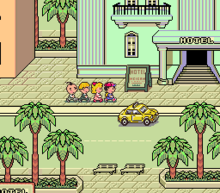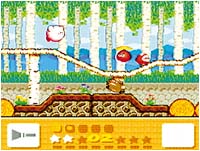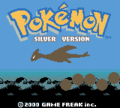“Teccam explains there are two types of secrets. There are secrets of the mouth and secrets of the heart.
Most secrets are secrets of the mouth. Gossip shared and small scandals whispered. There secrets long to be let loose upon the world. A secret of the mouth is like a stone in your boot. At first you’re barely aware of it. Then it grows irritating, then intolerable. Secrets of the mouth grow larger the longer you keep them, swelling until they press against your lips. They fight to be let free.
Secrets of the heart are different. They are private and painful, and we want nothing more than to hide them from the world. They do not swell and press against the mouth. They live in the heart, and the longer they are kept, the heavier they become.
Teccam claims it is better to have a mouthful of poison than a secret of the heart. Any fool will spit out poison, he says, but we hoard these painful treasures. We swallow hard against them every day, forcing them deep inside us. There they sit, growing heavier, festering. Given enough time, they cannot help but crush the heart that holds them.”
–Patrick Rothfuss, The Wise Man’s Fear
I am sitting in the orthopedic surgeon’s office, waiting for him to arrive. My pain cannot be defined as chronic yet, it has “only” been two and a half months. I grasp my hip. I’m mildly aware that sitting for too long exacerbates the pain, but if I pace, I might appear anxious. I already know the MRI must be negative. If they had found anything they would have called. I hope anyway for answers, for a diagnosis, for a direction to head.
“There is nothing wrong with you.”
Maybe for most this would be positive. If it was a routine check-up, I would want to hear nothing else. However, this is not normal. Something is wrong. My pain is constant. It isn’t relieved by rest or Advil or meditation or exercise or any number of things I tried before admitting that the pain was out of my hands. Trying to remain calm I ask him what I should do.
“Return to your normal activities. There is nothing wrong with you.”
I had. I tried running through the pain. I tried yoga and stretches. I tried not to be “weak”. I tried simply ignoring it. I tell him something is wrong, my pain is constant.
“Well, physically there is nothing wrong with you.”
I do not know if I imagined the emphasis on physically. I felt the sting of the subtle accusation: your pain is not real, your pain is imagined, your pain is caused by your negative psychological state.
When I relayed the results to friends, I felt like they believed the diagnosis too. I was just complaining or looking for attention. I did everything I could to look like I wasn’t in pain for fear of losing my job (where I coincidentally study pain). I didn’t look like I was in pain. Soon, I started to believe it too.
I caused my own pain. If I was happier, if I could let go of my stress, maybe it would go away. I immersed myself in hobbies, trying to find my “cure”. I gave them up one by one and soon I had nothing left but the pain.
There wasn’t any particular day I woke up and announced to myself I was a chronic pain patient. In fact, the months rolled by and suddenly I had been living more than six months with my pain. For the most part my pain was moderate, always rating between four and six. Every so often, I would have what’s called a “flare-up”, where my pain jumped up to an eight.
I could never let anyone know or see. The pain wasn’t real, no one believed me. When I wasn’t paying attention all the walls went up and I was looking through a window at everyone I loved and I was alone. Everyone was there, but I was alone.
Shortly before my freshmen year of high school, I met my first love. My mother sent me away for part of the summer. Despite my docility, she believed I would become rebellious in high school and she wanted to send me to a boarding school. She promised if I was good and worked hard during the last part of the summer, I could stay with the family. Though I can never be defined as “rebellious”, especially in high school, I believe this “deal” sparked what little defiance I had at the time.
I met him when I “got lost” while hiking. I was heading up the trail, I looked up at him, our eyes met briefly and I smiled politely before passing by him. I didn’t get more than a few feet before his hand grasped my shoulder and he asked me to wait. He asked me why I had smiled at him. I laughed and told him that everyone deserves a smile.
He walked with me to the top and we talked for a long while. Over the next few weeks we would sneak out to meet each other. He was a few years older, his father was abusive and both his parents were alcoholics. He ran away from home and was working to save money for college. He smoked, but he was trying to quit. “I wish I never started.”
In a world where we felt rejected by the people who, by society’s standards, should love us move than anyone, found love in each other. I was only fourteen and I know many would dismiss our love as teenage hormones and lust, but, to this day, I really believe that I loved him.
I left to go work for my mother, but we sent each other handwritten letters which I’ve kept to this day. We talked about our daily lives, our dreams of me moving there to continue school, how we would go to college and then get married and live happily ever after. My mother decided to keep me because I worked so hard. At the time I was glad, but I never got the affection I wanted from her and even twelve years later, I can’t help but think how things might have been if I had left. It’s a worthless and painful exercise, but one I participate in nonetheless.
We kept writing to each other until his last letter to me he told me about how his father had killed his sister’s dog and she subsequently took her own life. I wrote back with my sympathies, explaining how I wish I could be there for him and how horrible the situation was. Even now, I don’t know how to write that letter. I did the best I could as a fourteen year old who had never experienced such a loss, but he never wrote back. To this day, I don’t even know if he ever received it.
The day of his sister’s funeral, his best friend caught him drinking. A lot. I didn’t know at the time that he was an alcoholic. Having grown up in a household where drinking was so pervasive, he picked up the habit young and it controlled his life. Until he met a girl who told him that everyone deserves a smile.
I almost wish I had said something more potent, however stupid that sounds. In a fictitious story, I would have. Something that really resonated. Something that would really stop someone from jumping off a cliff, if they were tempted to do so, as he was that day. Apparently what I said had been good enough. Or maybe it hadn’t been the words, maybe he just needed to know that someone out there would show him any sort of kindness.
The sort of kindness that was better than the numbing effects of alcohol. The sort of kindness that was worth trying to regain control of his life. I think he just needed someone to hear his story. He needed someone to let him know he didn’t deserve to be constantly inflicted with pain just for existing. He needed someone to be there.
His friend, who had become a mutual friend, caught him drinking and, knowing that he had been an alcoholic and had quit, lambasted him for giving up at his sister’s funeral. Ashamed and drunk, he left the funeral and drove to the mountain where we had met and jumped as he intended to do six months before.
Most of this I learned from his diary and the note he left behind. I can’t help but wish I had been there. I can never know if I would have stopped him or if our relationship would have lasted, but I can’t help but feel like I belonged there, comforting him after the loss of his sister.
I was depressed when I learned what had happened. I was guilty and I felt like it had been my fault. I couldn’t tell my parents, I had gone against their wishes. I never told my friends about this boy and it didn’t seem right to now. Who would even believe a timid girl such as I had a boyfriend in a different state? I felt the blame from our mutual friends. We were all in shock and sad and the ties between us seemed permanently severed. I went about my daily routine, but everything was different.
I forced the secret down into my heart and I was never that timid, smiling fourteen year old girl again.
The weight of the burdens we hold, the secrets of our hearts, can crush us if we let them. No matter how deep we push them, they are ever present, waiting to break free.
I’ve held my secret of the heart closely, allowing it free a few times in moments of vulnerability, moments where I choose to write, such as this one. Sometimes in the months of pain, the secret pushed against the walls, threatening to come alive, and I wondered if the secret caused my pain. The guilt, the sadness, the shock bubbled below the surface as it had for eleven years. Maybe it was taking revenge for its captivity. Maybe it could never be controlled.
I’m releasing the secret. If the right person reads this blog, there are enough details to know it’s me. I lost my best friend, I lost someone I truly loved, and for a long time I believed it was because I was selfish. No, it was a tragedy, and he needed someone to share his own secrets with, but it was not my fault.
I’m releasing the secret, but not because I believe it will cure my pain. I’ve since released the secret of my pain, and while I feel the relief of the burden, it did not cure me or make my pain better. It did help me though. I don’t feel the paranoia anymore, like everyone is waiting for my pain to overtake me. I feel now like I’m building a solid support system where I can talk about it freely, I just had to take a chance on the right people.
I’m sharing the secret with you in the hopes that you can see how deadly secrets of the heart can be. They’re a ticking time-bomb, a parasite leeching away you energy, the seas slowly drowning you without mercy. Sharing the secrets of the heart make us vulnerable, but I know I am strong. I know I can survive the secret that has been fighting to defeat me for twelve years. I hope others can find the courage to set their secrets free as well.
Today, I am a better person than I was yesterday.
 I won’t say it never got me into trouble, or that I spent time playing games when I should have been concentrating on other things, but I really don’t think I’d even be alive without them. It was the perfect medicine to combat my low self-esteem, my anxiety and my depression. I truly lived in a completely different world from the “real” one.
I won’t say it never got me into trouble, or that I spent time playing games when I should have been concentrating on other things, but I really don’t think I’d even be alive without them. It was the perfect medicine to combat my low self-esteem, my anxiety and my depression. I truly lived in a completely different world from the “real” one. It was always obvious to me the Mr. Iwata wasn’t just the president of Nintendo, but that he lived and breathed these games just like gamers around the world did. I felt his passion for games whenever I heard him talk about Nintendo’s progress. I believed he went home and enjoyed these games just like I did.
It was always obvious to me the Mr. Iwata wasn’t just the president of Nintendo, but that he lived and breathed these games just like gamers around the world did. I felt his passion for games whenever I heard him talk about Nintendo’s progress. I believed he went home and enjoyed these games just like I did.